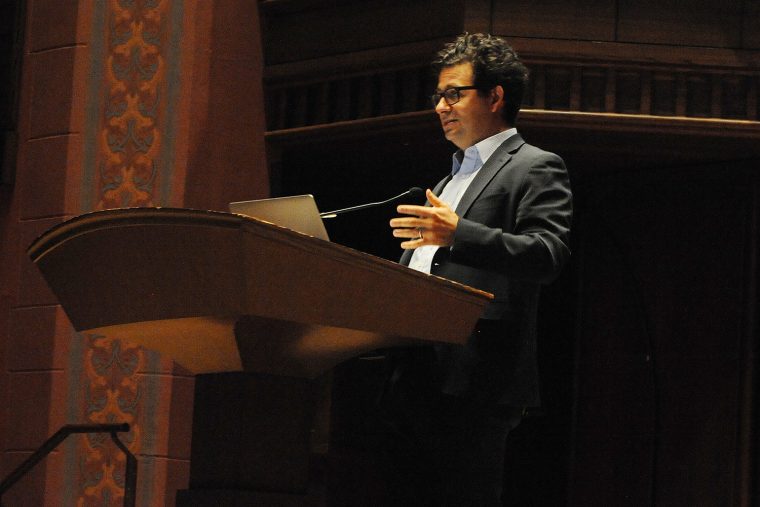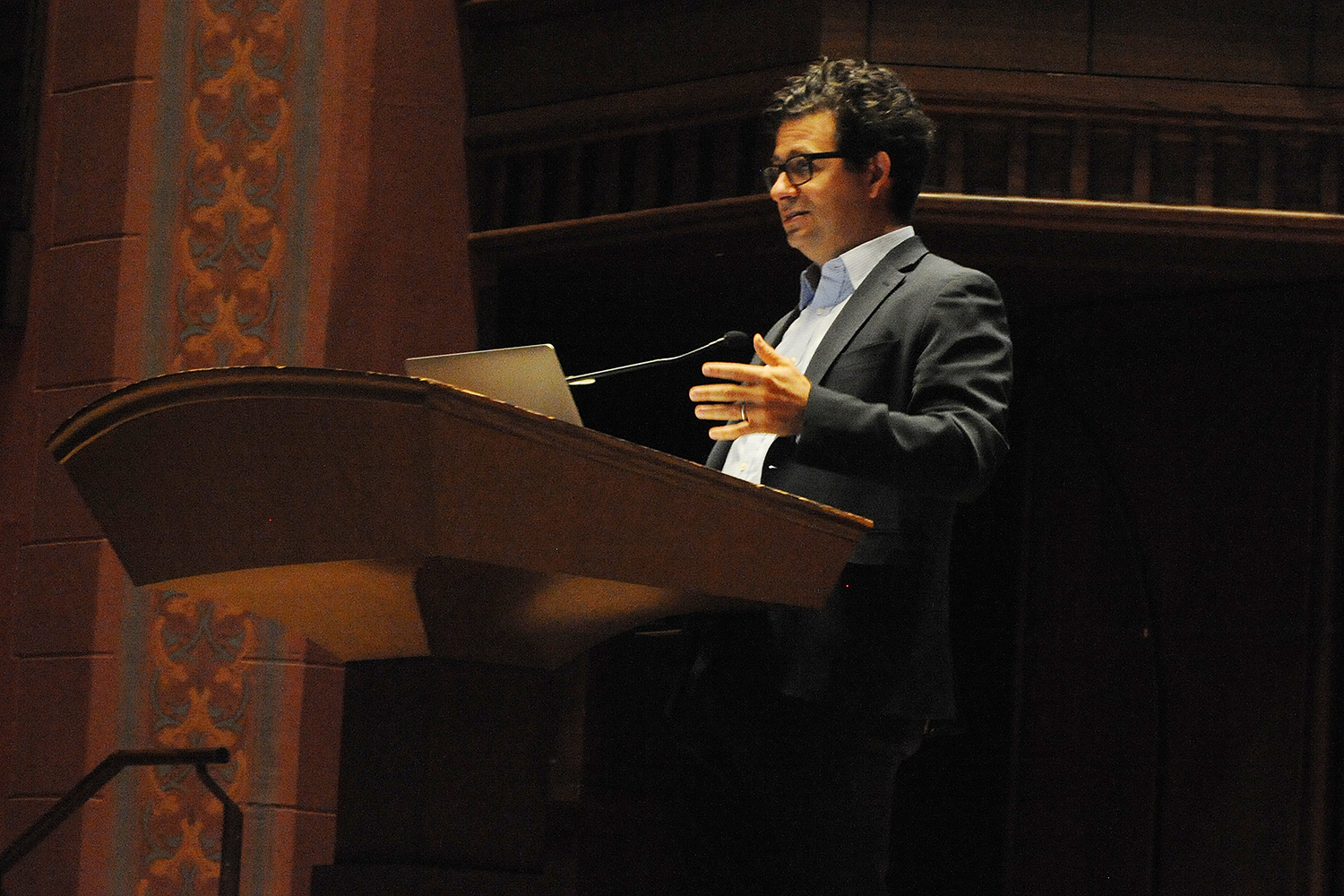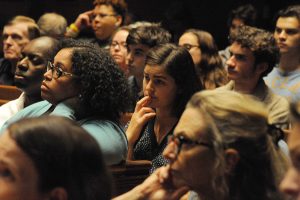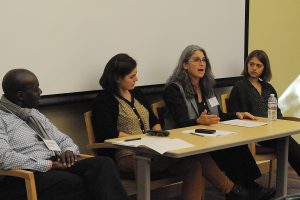Shasha Seminar Sparks Dialogue on Universities’ Response to Mass Incarceration


The 13th Annual Shasha Seminar for Human Concerns, held Oct. 14-15, offered panels and discussions on “The Role of the University in the Era of Mass Incarceration.” Experts and activists from across the country, as well as members of the Wesleyan community, considered practical and philosophical responses to the current situation, placing it in a historical perspective that began with slavery. Additionally, Wesleyan’s Center for Prison Education (CPE) program alumni gave individual testimony to the imperative they placed on access to learning within the penal system.
Keynote speaker Michael Romano ’94, who teaches at Stanford Law School, is the co-founder and director of the Stanford Justice Advocacy Project. He also co-authored Proposition 36, which overturned key sections of California’s “Three Strikes” law that had been enacted in 1994, causing the state’s prison population to balloon with many inmates sentenced to life terms for nonviolent crimes.

“The United States has five percent of the world’s population, but 25 percent of the prison population,” he told those seated in Memorial Chapel Oct. 14.
The Justice Advocacy Project, he explained, helps to win the release of those convicted to life sentences under the “Three Strikes” law. “It’s like the Innocence Project—except they’re guilty,” he said, explaining that the focus was on release—but not through revisiting the facts of the conviction, but by calling attention to the question of whether justice was served with a lifetime sentence. “We’re trying to use the university as a vehicle to experiment with ways to get nonviolent criminals released. We are taking a chance on an important social issue,” he said.
Additional alumni panelists and speakers included Greg Berman ’89, co-founder and director of the Center for Court Innovation; Sylvia Ryerson ’10, producer of Restorative Radio, which captures long-form “audio postcards” from home, broadcast to those inside prisons; Sarah Williams ’88. a board member of Wesleyan’s Center for Prison Education as well as co-chair of the board of the Patricelli Center for Social Entrepreneurship; Russell Perkins ’09, co-founder of Wesleyan’s Center for Prison Education; and Jody Lewen ’86, founder and executive director of the Prison University Project. Under Lewen’s leadership the project received a National Humanities Medal in September.
 Wesleyan Professor of History Demetrius Eudell moderated a panel on Mass Incarceration and the University Curriculum, which also included Ryerson. Wesleyan’s William Griffin Professor of Philosophy Lori Gruen, who has taught in Connecticut prisons through Wesleyan’s Center for Prison Education, and Sitar Terrass-Shah ’17, who served as a T.A. for Gruen’s course there were also part of this panel
Wesleyan Professor of History Demetrius Eudell moderated a panel on Mass Incarceration and the University Curriculum, which also included Ryerson. Wesleyan’s William Griffin Professor of Philosophy Lori Gruen, who has taught in Connecticut prisons through Wesleyan’s Center for Prison Education, and Sitar Terrass-Shah ’17, who served as a T.A. for Gruen’s course there were also part of this panel
Wesleyan’s John E. Andrus Professor of Sociology and Director of the Allbritton Center Rob Rosenthal moderated the panel, The Role of University-Produced Scholarship in Public Policy. Greg Berman ’89, of the Center for Court Innovation served as a panelist, along with professors from Yale and Quinnipiac universities.
The seminar closed with a talk by Reginald Dwayne Betts, a poet and author, as well as a recent graduate of Yale Law School. Incarcerated for eight years on a juvenile offense, he challenged the attendees to “think about crime differently, so the default is not prison,” but a new and deeper way to address society’s ills.
“All too often, when we think about places as problems, it’s really people that we’re thinking about as the problems,” he observed.
The 15th Annual Shasha seminar is underwritten by the Shasha Seminar for Human Concerns. Endowed by James. J. Shasha ’50, P’82, the Shasha Seminar is an educational forum for Wesleyan alumni, parents, and friends.
Cathy Crimmins Lechowicz, director of the Jewett Center for Community Partnerships at Wesleyan, is joined in her work with the Center for Prison Education by colleagues Noah Barth, program manager for the CPE, and Kristen Inglis, academic development and planning manager for the CPE.
(Photos by Rebecca Goldfarb Terry ’19 and Will Barr ’18)

